Cold War, Colder, Salisbury
Adelina Marini, March 28, 2018
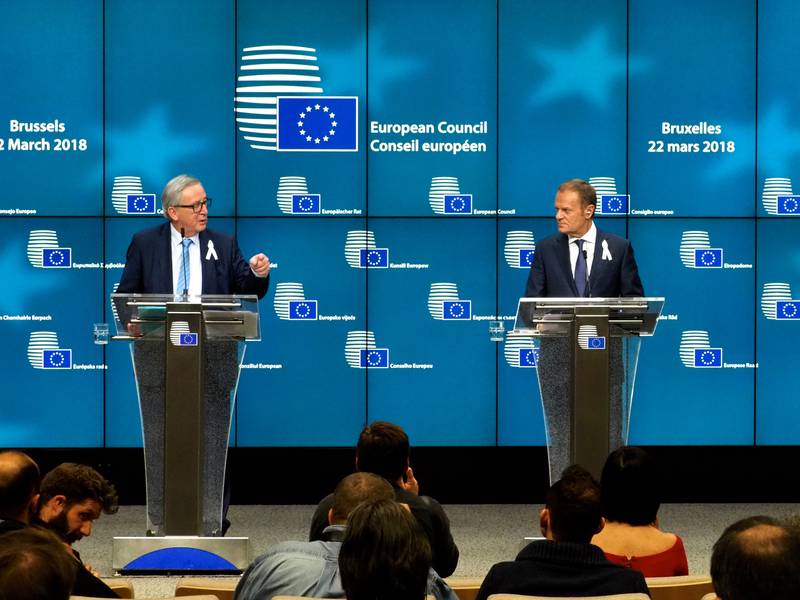 The attack on the UK has put Russia right after Brexit and Donald Trump as another strong driver of European unification. Britain's decision to leave the EU united the member states in an unprecedented manner. They confirmed their vows not only to continue with the project but also to deepen it. US President Donald Trump has merits for the European Union's emancipation from the American defence shield, embarking on integration in the area of defence but also in foreign and trade policy. The attack with a nerve agent in the small south-western city of Salisbury against the Russian double agent Sergey Skripal and his daughter Yulia caused another wave of unity in the EU. Moreover, the attack showed that Brexit is not the end of the British-European relations.
The attack on the UK has put Russia right after Brexit and Donald Trump as another strong driver of European unification. Britain's decision to leave the EU united the member states in an unprecedented manner. They confirmed their vows not only to continue with the project but also to deepen it. US President Donald Trump has merits for the European Union's emancipation from the American defence shield, embarking on integration in the area of defence but also in foreign and trade policy. The attack with a nerve agent in the small south-western city of Salisbury against the Russian double agent Sergey Skripal and his daughter Yulia caused another wave of unity in the EU. Moreover, the attack showed that Brexit is not the end of the British-European relations.
On 19 March, the EU foreign ministers came up with an unprecedentedly strong statement in which they state that the Union takes very seriously the British government's assessment that it is very likely the Russian Federation to be behind the attack. "The European Union is shocked at the offensive use of any military-grade nerve agent, of a type developed by Russia, for the first time on European soil in over 70 years. The use of chemical weapons by anyone under any circumstances is completely unacceptable and constitutes a security threat to us all", the statement reads. It is pointed out that its use is a "clear" violation of the Chemical Weapons Convention, of international law, and undermines the rules-based international order.
United but not quite
Despite the strong language and the stated unity, the incident has shown that Russia is still a factor of division. Some member states were cautious in condemning Russia and demanded more information, whereas others asked for evidence about the involvement of Russian authorities. The statements of the EU foreign policy chief Federica Mogherini (Italy, S&D) raised a very serious intra-European issue - how much trust there is between the intelligences services of the member states? The issue is not new and emerges every time when it comes to deepening of integration in the area of security and defence.
When asked to comment that not all member states reacted as sharply as France and Germany in UK's defence, Ms Mogherini said that it was quite normal reactions to vary from country to country. "It might also depend on the fact that, maybe, different intelligence services have different relations to the British intelligence service bilaterally", the high representative suggested. She emphasised though that the basis of European unity is that everyone takes very seriously London's claims that behind the attempted murder very likely stands Russia.
Foreign Secretary Boris Johnson's impressions confirm that the EU has finally matured to admit that Russia indeed is a threat. "And what really strikes me talking to European friends and partners today is that 12 years after the assassination of Alexander Litvinenko in London they're not fooling anybody anymore. There's scarcely a country round the table here in Brussels that has not been affected in recent years by some kind of malign and disruptive Russian behaviour", he said after the end of the Foreign Affairs Council on 19 March.
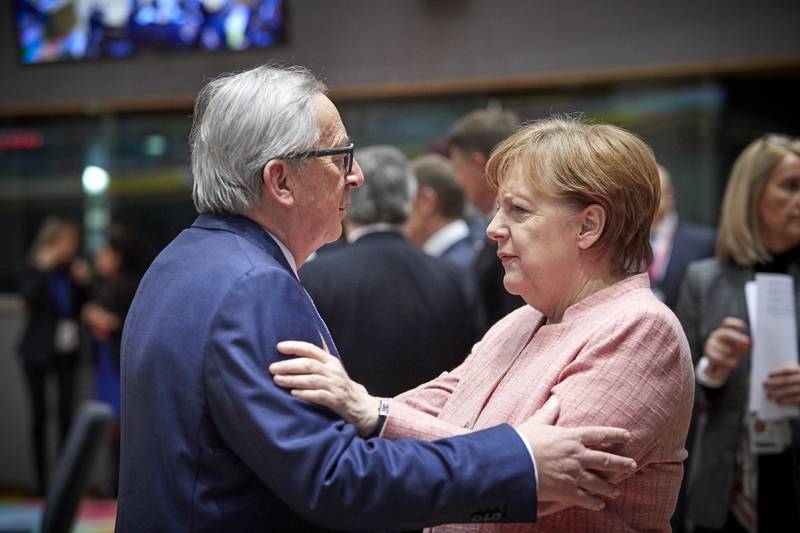 The Skripal case was one of the major issues of the spring European Council, which took place in Brussels on 22-23 March and which also ended with a demonstration of unity, but with a reminder as well that the Russian cancer has metastases in the EU and individual member states. Division was clear even before the summit when it emerged that some member states sent congratulations to Russian President Vladimir Putin on the occasion of his renewal of his term at something that can hardly be called an election. Big noise in Brussels was raised by the letter of congratulations of European Commission President Jean-Claude Juncker (Luxembourg, EPP), in which he said that he always believed that positive relations between the EU and Russia are very important for the security of our Continent. "Our objective should be to re-establish a cooperative pan-European security order", the address says.
The Skripal case was one of the major issues of the spring European Council, which took place in Brussels on 22-23 March and which also ended with a demonstration of unity, but with a reminder as well that the Russian cancer has metastases in the EU and individual member states. Division was clear even before the summit when it emerged that some member states sent congratulations to Russian President Vladimir Putin on the occasion of his renewal of his term at something that can hardly be called an election. Big noise in Brussels was raised by the letter of congratulations of European Commission President Jean-Claude Juncker (Luxembourg, EPP), in which he said that he always believed that positive relations between the EU and Russia are very important for the security of our Continent. "Our objective should be to re-establish a cooperative pan-European security order", the address says.
European Council President Donald Tusk (Poland, EPP), who, in December, on the occasion of a joke by Mr Juncker said that he was not a fan of Russia, before the EU summit last week he said that against the backdrop of the Salisbury attack he was not in a mood to congratulate Putin. Lithuania President Dalia Grybauskaite, another member of the European Council with strong anti-Russian positions, explained that she decided not to congratulate Putin, especially after the attack in the UK. "For me, in this occasion, there is no space at all for baroque diplomacy", she said with her typical attitude.
Others, however, were more cautious. Irish Prime Minister Leo Varadkar admitted that it is hard for small countries. "We're all, the 28 of us, small countries in many ways but there are big countries that surround us, and we sometimes come to conflict with them - Russia on security, issues with Turkey at the moment as well, issues with America on trade. It's very important that we stick together. I think that what occurred in Salisbury was loathsome and reprehensible and we're gonna stand right beside the UK on this issue", he said. Bulgarian Prime Minister Boyko Borissov, whose country is currently holding the 6-month rotating presidency of the Council, expressed doubts in the authenticity of the attack. Boyko Borissov cited his experience as a chief secretary of the interior ministry and said that, usually, it is never what it seems.
"On the one hand, it is very stupid, very visible, very brutal, very suggestive. At some point, someone says that this was President Putin's interest to raise voter turnout. I don't think there was a person in the world who doubted that Putin would win the election. Neither to the west nor to the east. Moreover, if it is true what they say that he can influence the elections in the US it would be to him a child game to do it for his own elections", the premier said. He believes that evidence must be presented first, even about who ordered the attack, considering also the possibility that it could be a terrorist organisation. His doubts that it is very likely Russia to be behind put many of his colleagues in an awkward position as both Croatian Prime Minister Andrej Plenkovic and Ireland's Leo Varadkar said that not a single leader doubted the authenticity of the analyses of the British intelligence service, which means that everyone agreed that behind the attack most probably stands Russia.
Leaders discussed the issue for 3-4 hours and issued conclusions in which they say that the European Council accepts the UK government's assessment that it is very likely the Russian Federation to be responsible for the attack and that there is no other plausible explanation. The leaders decided to recall the EU ambassador in Moscow for consultations and to decide additional measures. They committed to strengthen the EU resilience against chemical, biological, radiological or nuclear risks, 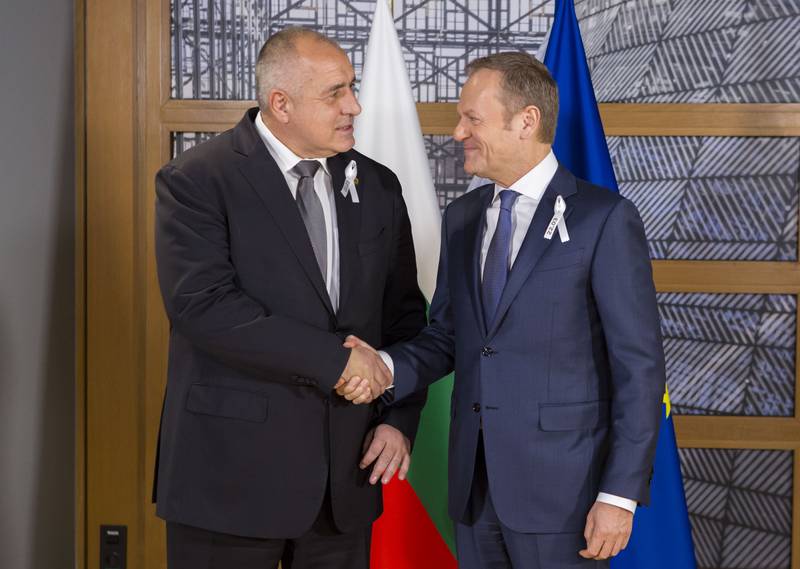 including closer cooperation with NATO. The leaders asked the European Commission and the high representative to start work immediate and to report on progress in June.
including closer cooperation with NATO. The leaders asked the European Commission and the high representative to start work immediate and to report on progress in June.
Doctor Kolinda and Mr Plenkovic
Position toward Russia is another neuralgic point that revealed the split mind of the Croatian foreign policy. According to the Constitution, the government and the presidency have to cooperate in forming foreign policy. However, since her election in 2015, Kolinda Grabar-Kitarovic demonstrates an ambition to dictate foreign policy agenda. This leads to increasingly uncomfortable situations. The President was among the first and few EU leaders who congratulated Putin for his re-election.
The memory of the non-consulted with the government visit of Serbian President Aleksandar Vucic in Croatia earlier this year, on Ms Kolinda Grabar-Kitarovic's invitation, still vivid, from Pantovcak (the headquarters of the Croatian president) came another strike in the Prime Minister Andrej Plenkovic's back. While he was on his way to Brussels for the spring EU summit, she spoke on the phone with Mr Putin. During the conversation, she renewed her invitation to him to visit Croatia which would put the country among the very few in the EU that pay such respects to the Russian president at a time when relations with EU have reached the freezing point. And if looked from the Balkan angle, the warm relations she wants to develop with Putin have a very different tinge against the backdrop of the growing evidence for malign involvement of the Kremlin in blazing tensions in the Western Balkan countries.
Andrej Plenkovic told journalists before the summit that he did not know about Ms Grabar-Kitarovic's intention to talk to Putin. According to him, there is no link between the EU measures and the invitation to Putin. All the time, however, he spoke of the president's dialogue with Mr Putin and her agreements with him during her visit in Moscow last year as if this is not a dialogue on behalf of Croatia.
Varna is speaking
On Monday, Donald Tusk announced that initially 14 member states decided to expel Russian diplomats. He did that from Varna before the EU-Turkey summit. The city on Bulgaria's Black Sea coast, is notorious with strong Russian presence. According to reports in Bulgarian media, currently some 500 000 properties in Eastern Bulgaria are owned by Russian citizens. The number of temporary or permanent Russian residents is also growing. They are mainly located in Varna but also in Dobritch, Shumen, Burgas, Yambol and Sliven. The Sega daily reports that the population of Pomorie doubled because of the Russians who settled there.
During Mr Tusk's statement, on Twitter, member states' declarations started pouring. So far 19 member states have decided to expel Russian diplomats, Luxembourg and Bulgaria have opted only for a recall of ambassadors, and a few will do nothing, among them Austria and Cyprus. But it is very likely that the list of those who decided to expel will grow or otherwise those countries risk to remain isolated.
What if Tusk was not a president?
When he was elected in 2014 it was clear that Donald Tusk would balance between the western part of the Union and the eastern one. He is notorious with his lack of trust and his suspicion of Russia, and also with his straightforward talk. During his two terms, he insisted Russia to be on the agenda and worked to build a common European position which resulted in great success when in December the leaders voted unanimously and without debate on continuing the sanctions against Russia.
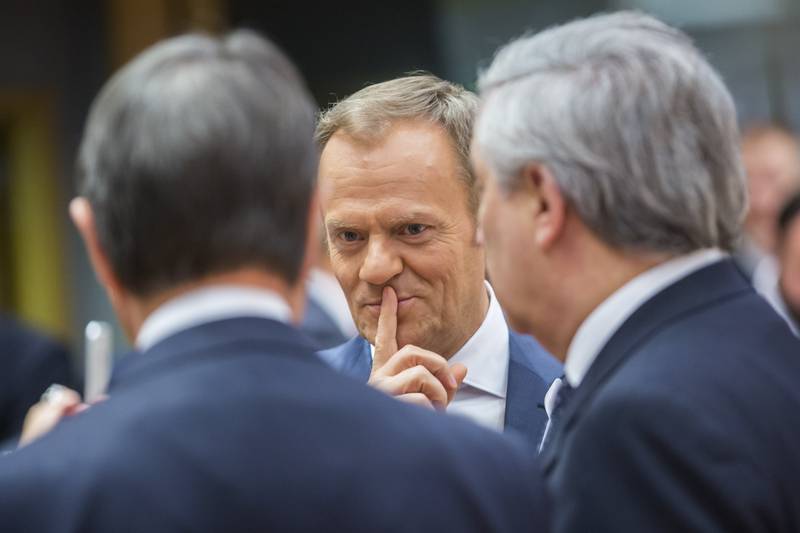 After the spring summit, Donald Tusk said that EU reaction is without precedent. "It's very difficult to prepare an adequate reaction of this kind of behaviours, like a nerve agent attack. We will never have a real chance to response adequately because we are completely different to the perpetrators of this attack, if you know what I mean. This is why, I was focused yesterday on, for me, the most important political goal - the whole community to be united as possible. And we achieved this. We have different positions, this is nothing new, different interests, different traditions, it's about geography - this political landscape in Europe towards Russia - and this is why it's not so easy to keep the 28 group together", Tusk said and was supported by Jean-Claude Juncker, who added that this is an extraordinary measure. "We never did it before".
After the spring summit, Donald Tusk said that EU reaction is without precedent. "It's very difficult to prepare an adequate reaction of this kind of behaviours, like a nerve agent attack. We will never have a real chance to response adequately because we are completely different to the perpetrators of this attack, if you know what I mean. This is why, I was focused yesterday on, for me, the most important political goal - the whole community to be united as possible. And we achieved this. We have different positions, this is nothing new, different interests, different traditions, it's about geography - this political landscape in Europe towards Russia - and this is why it's not so easy to keep the 28 group together", Tusk said and was supported by Jean-Claude Juncker, who added that this is an extraordinary measure. "We never did it before".
Against the backdrop of the Skripal case, one cannot but ask the question what would have the outcome be if at the helm of the European Council were not a Pole and Donald Tusk at that? This question is especially important a year ahead of the big horse trading of key EU posts, including that of the European Council chief. He is leaving behind a strong legacy. However symbolic, the fact that more than half of the member states (the number is still rising) expelled Russian diplomats is the strongest message to Russia so far. And this is just the beginning. Nothing will ever be the same. This case marks the opening of a new chapter in relations with Russia. As one of the biggest Russophiles in the Balkans said recently - Serbian Deputy PM and Foreign Minister Ivica Dacic - the war is no longer Cold but icy.
Salisbury forced the EU to make another tangible step toward building a common European foreign policy, which is the most important condition to enable the Union to turn into a leading factor globally. The growing number of threats shows that this is inevitable.
 Boris Johnson | © Council of the EU
Boris Johnson | © Council of the EU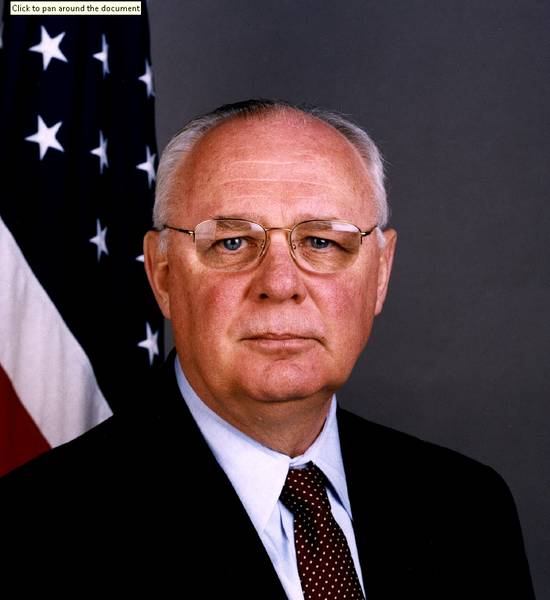 James W. Pardew | ©
James W. Pardew | © 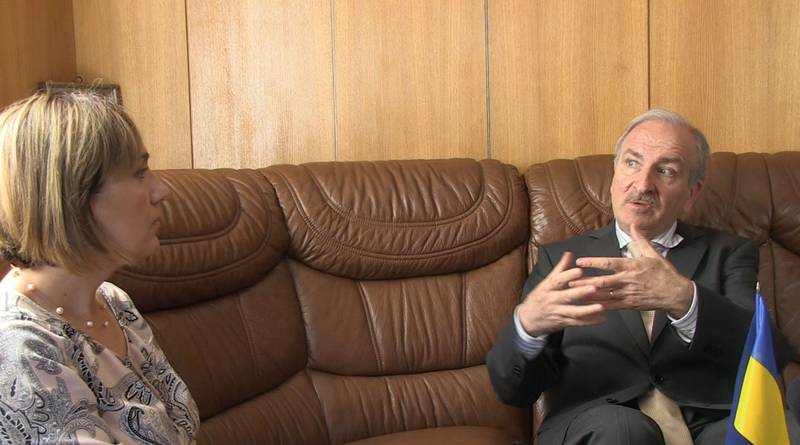 Mykola Baltazhi | © euinside
Mykola Baltazhi | © euinside